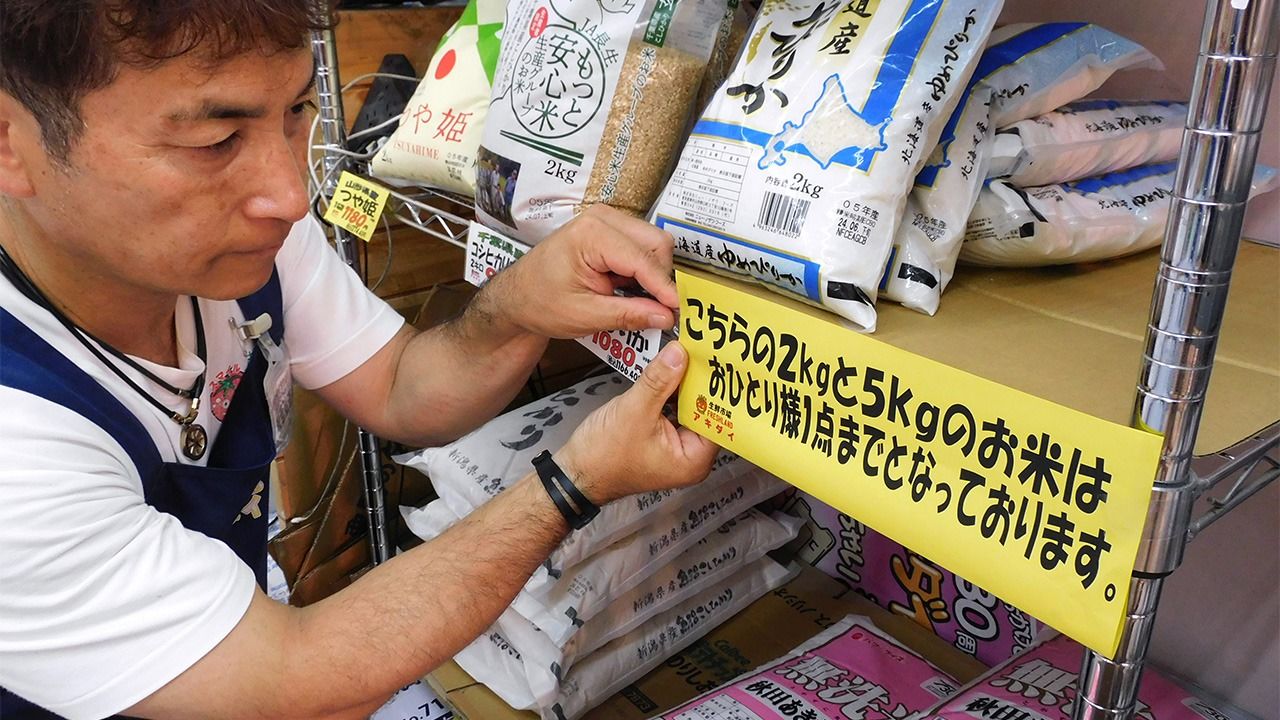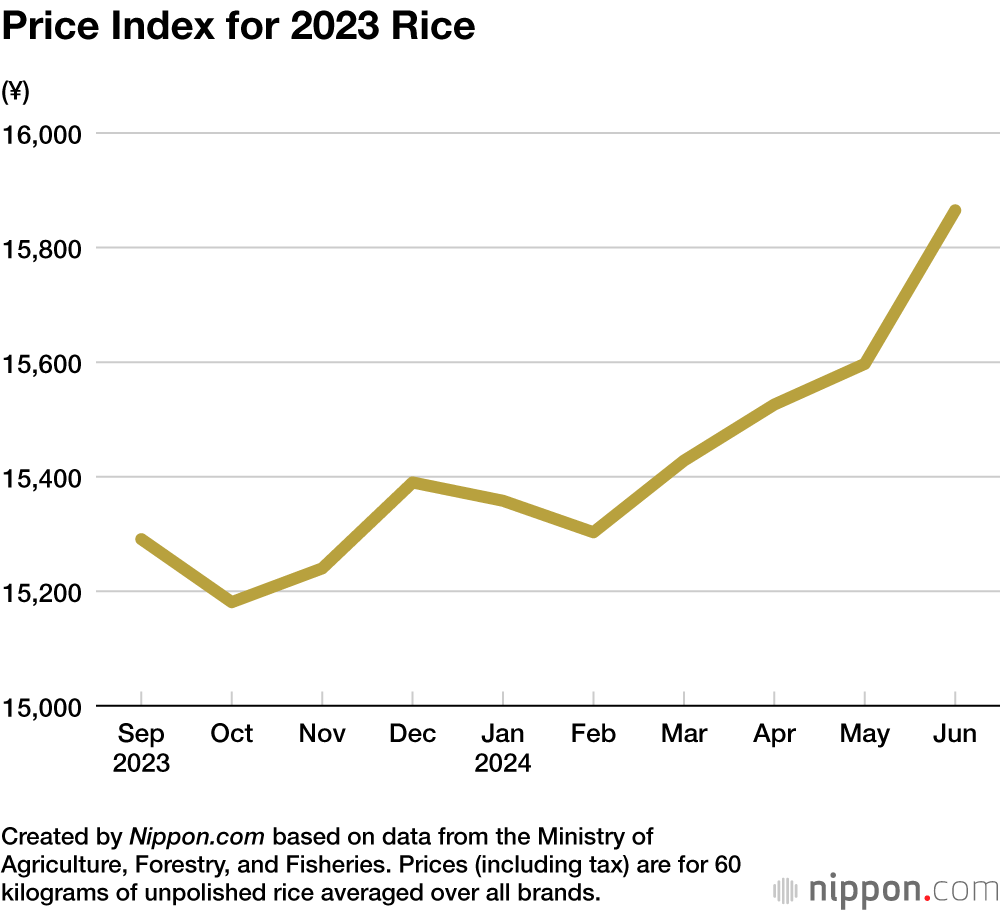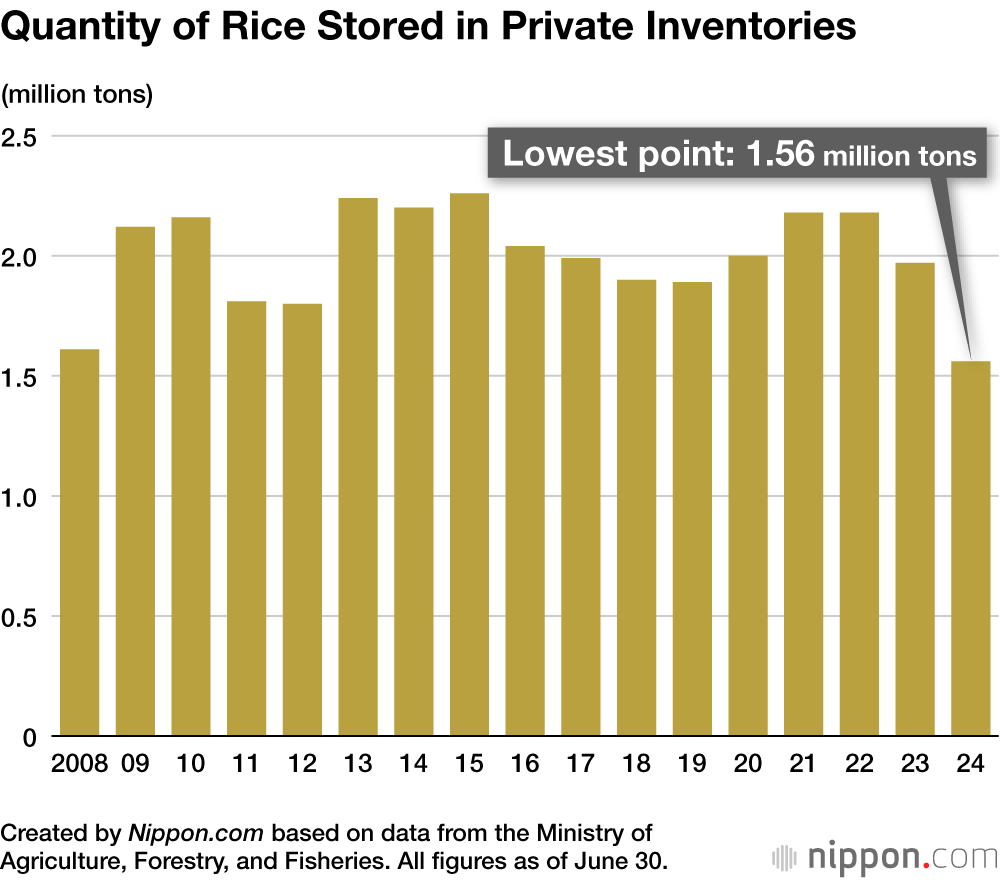
Price of Rice in Japan Reaches 11-Year High
Economy Society Food and Drink- English
- 日本語
- 简体字
- 繁體字
- Français
- Español
- العربية
- Русский
Prices for Japan’s fiscal 2023 rice crop have been rising sharply, in part due to last year’s high temperatures that reduced quality and the quantity of rice distributed. The main index of rice prices, released by the Ministry of Agriculture, Forestry, and Fisheries, reached its highest level in 11 years.
Rice grown in Japan is generally collected from farmers by the Japan Agricultural Cooperatives (JA) and distributed via wholesalers to supermarkets, restaurants, and other customers. The price at which JA sells rice to wholesalers is the standard indicator of the price of rice, announced every month by MAFF.
According to preliminary figures, the price for 60 kilograms of unpolished rice in June 2023 was ¥15,865, an increase of approximately 14% over the same month of the previous year, marking the highest level in 11 years. Private inventories of rice as of the end of June 2024 totaled 1.56 million tons, a decrease of roughly 20% compared to the same month the previous year, reaching the lowest point since statistics were first kept in 1999.
Due to factors including population decline, demand for rice has been falling by around 100,000 tons per year, but it rose for the first time in 10 years during the one-year period to June 2024, increasing by 110,000 tons, to 7.02 million tons in total. According to MAFF, reasons for the rise include the increased consumption of rice by foreign visitors to Japan and recovery in demand following the COVID-19 pandemic.
MAFF estimated how the rapid increase in the number of overseas visitors to Japan has impacted demand for rice. Based on the assumption that each visitor consumes 78 grams of rice per meal and has two servings of rice per day, it was estimated that demand for rice among visitors to Japan rose from 19,000 tons during the period from July 2022 to June 2023, to 51,000 tons during the period from July 2023 to June 2024, for an increase of 31,000 tons.
An official from MAFF commented regarding the current rice situation that there was enough stock to meet demand, and with new rice from the 2024 crop already coming in from July onward, there would be no shortages.
(Translated from Japanese. Banner photo: A clerk at the Akidai Sekimachi supermarket in Nerima, Tokyo, places a notice informing customers that they can only buy one bag of rice each, amid limited supplies on July 25, 2024. © Jiji.)


